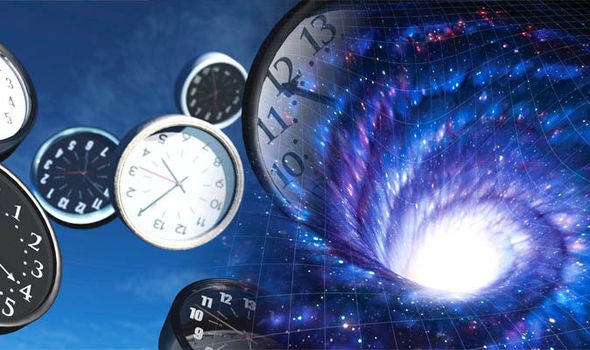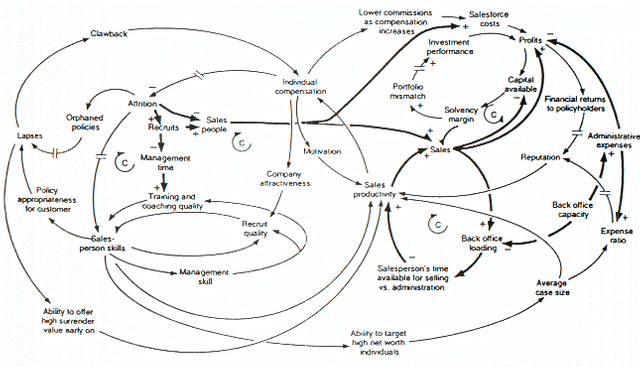Theory of Time Travel : Causal Loop

Imagine travelling into your past and advise your younger self to buy a fortune worth of bitcoins, how rich would you be today? Everyone,including myself, who's new to the crypto space must have had similar thoughts crossing their mind, and understandably so. In reality, however the consequences of taking such a decision could have massive ripple effects through time and space. This would imply the version of you who advised your younger self was once advised by another version, in a different version. But who started it?

This is how confusing things get, when multiple entities of different timelines interact with one another(Source)
One of the most mind-boggling, yet intriguing concepts of physics that has remained a subject of speculation through decades is the concept of Causal Loop, which is an infinite chain of cause and effect caused by two entities of different timelines, interacting with each other in a significant manner. To answer the above question, there isn't any as it would imply the existence of a timeline where a version didn't meet its older version in his timeline. That in itself would be a paradox.
THE SELF-CONSISTENCY PRINCIPLE
Causal loop , despite being heavily used in science fiction(commonly as Predestination Paradox), theoretically holds, thanks to general relativity that permits the existence of time travel and causal loop as a consequence. Einstein's theory of relativity fused the three-dimensions of space and one dimension of time, as a single continuum known as space time, whose implications were massive in our understanding of time itself. Time is generally thought of as this single line with no origin or terminus. However, Russian astrophysicist, Igor Dmitriyevich Novikov discussed the possibiliity of existence of "closed time-like curves" in certain universes where timelines were dimensional analogues of ellipses(closed curves). This meant that travelling through time would lead us to return to the same point twice. Novikov in this principle, stated that any laws of physics that holds true in real life, must be globally self-consistent. It means that, if two timelines were connected to each other, it would imply interconnection between every other timeline at some point.
The predestination paradox is similar to causal loop, except it is widely used in science fiction, which makes it open to several interpretation and alterations based on author's free will, as opposed to stricter scientific domain of a causal loop. It is the paradox of knowing how the future will unravel(in a manner similar to the one discussed in causal loop) and taking decision otherwise.
Like all paradoxes, it is more of an unanswered question than an theory, not to mention an excellent topic of debate that bridges the gap between science and philosophy. It is the debate of destiny versus choice.
Consider the following scenario - If we knew exactly where we'll be in life 5 years down the road through time-travel, and change the set of decisions that would've led to such an outcome in the present time-line, would we still face the same consequences, or will our outcomes have changed? Or if we moved forward through the same path, would things turn out the way it was meant to?
No one knows the answer to these questions or what life really is - a logically sound, dramatic script that gives us the illusion of autonomy or something that is really under our control. Whatever theory we might believe in, know that there will exist an equally powerful theory opposing it.

Predestination, the film(Source)
The 2014 science fiction thriller "Predestination" captures the essence of this theory with a trippy, marvelous plot that forces us to re-think our understanding of time travel and is worth more just a single watch. It reveals how limited our understanding of this concept fundamental to our collective existence .
I read somewhere that this is called the butterfly effect? Is that the same as above? Btw really cool article.
@fury123 Its somewhat similar. The butterfly effect(BE) is a broader theory, causal loop is a very specific case of that. BE is experimentally proven by Lorentz, whereas CL is borderline sci-fi, despite several theories supporting its validity. BE suggests that the fabric of space and time is extremely delicate, and small changes in initial events can massively impact event in the future. The term "Butterfly effect" is named after an analogy demonstrating this - a butterfly flapping its wing in Brazil can potentially trigger an earthquake in Chicago. I'll write in an article next week.
Interesting read and I'll definitely check the movie when I get a chance.
Thank you @celestal. The film is one of the best I've seen in my entire life. If one is unaware of the causal loop theory, it makes it more interesting. But being aware makes it no less thrilling.